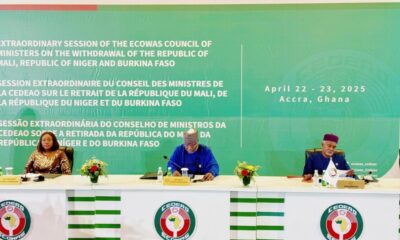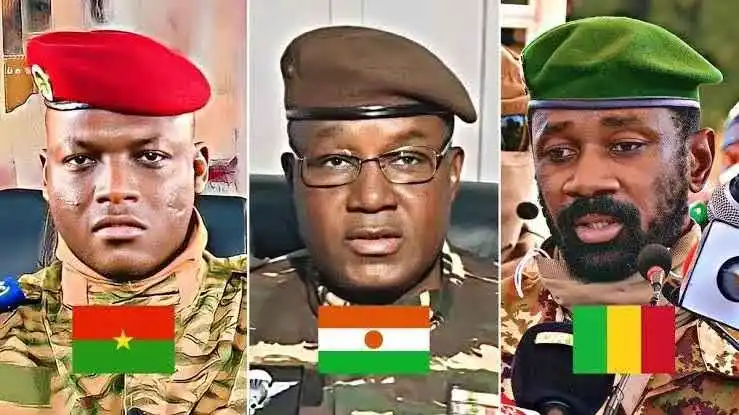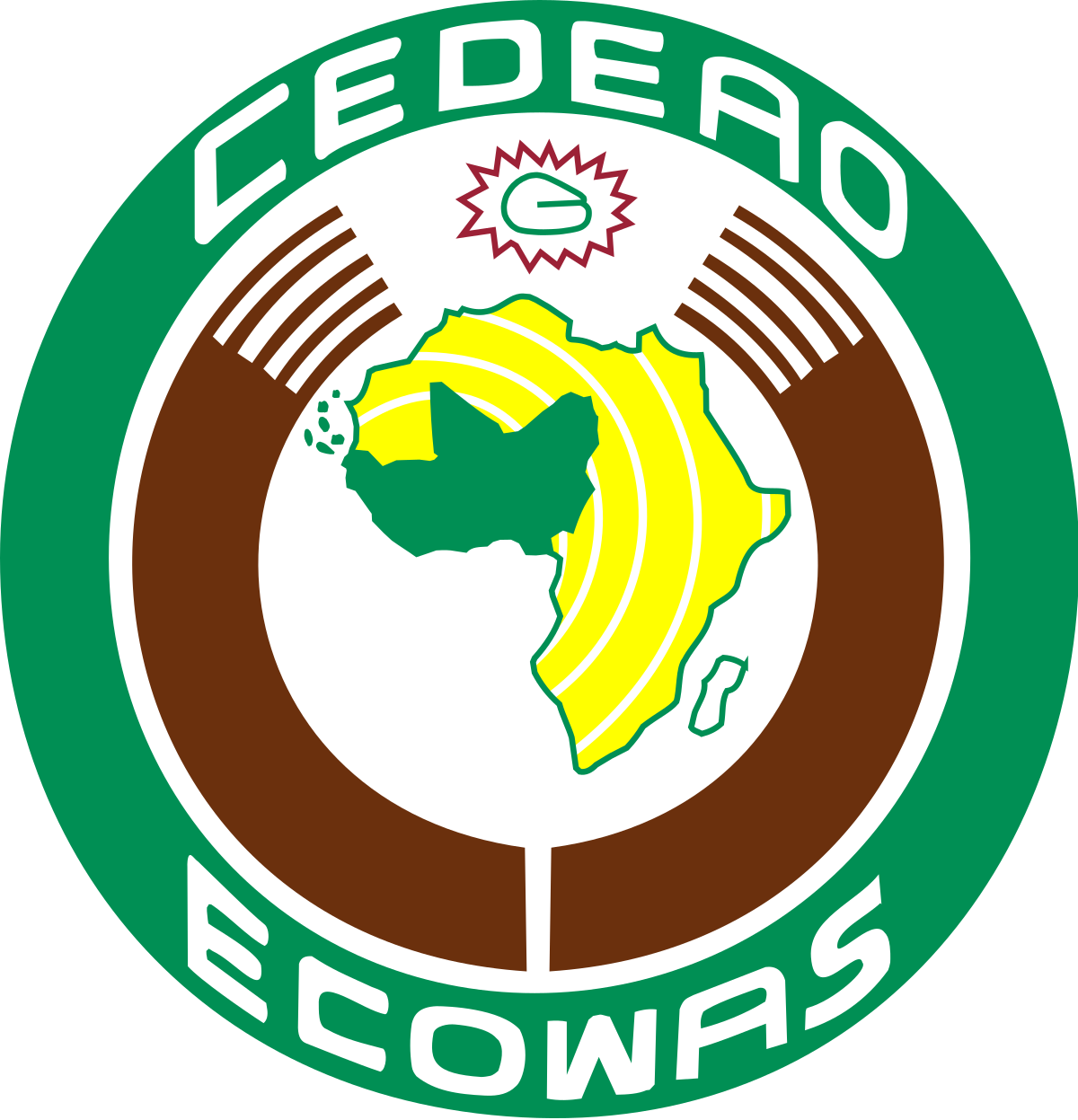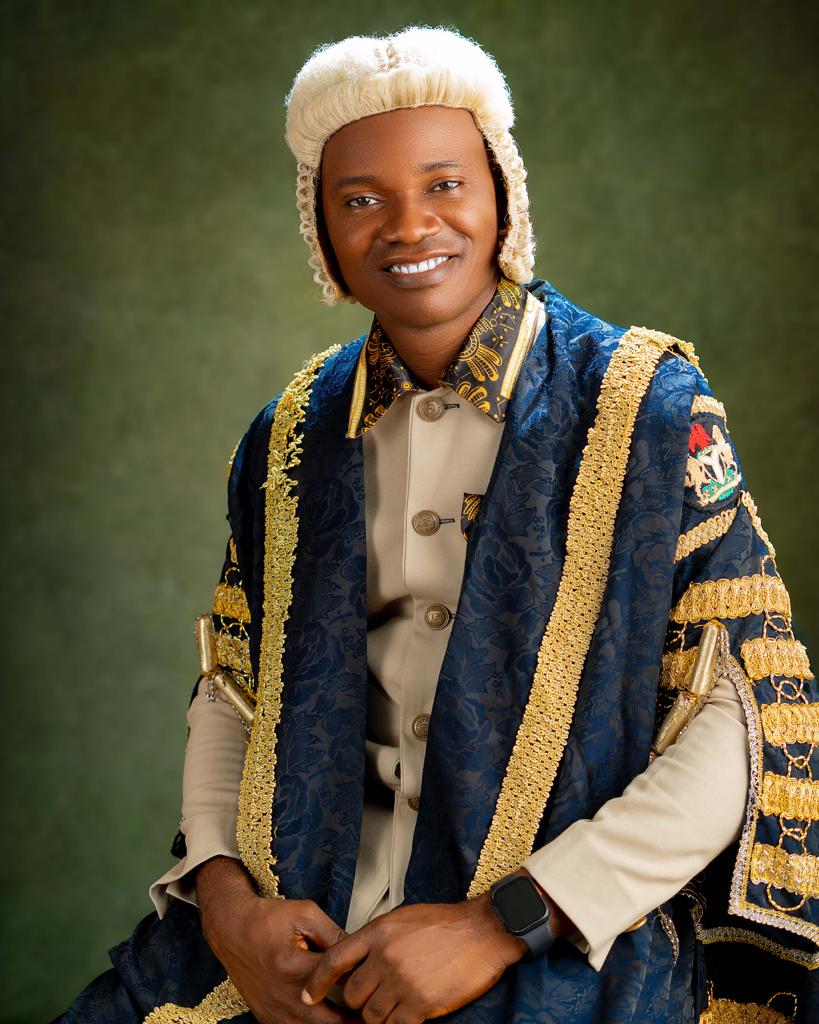NEWS
ECOWAS parliament moves to stop exit of Niger, Mali, Burkina Faso
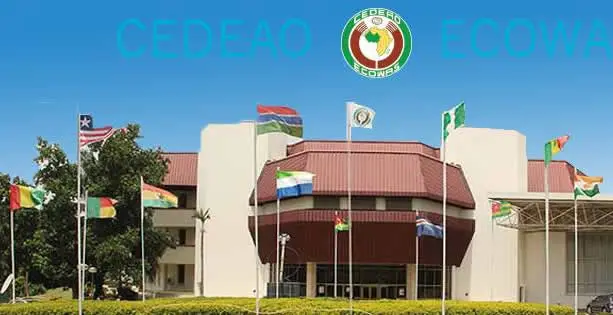
The Deputy Speaker of Nigeria’s House of Representatives, Benjamin Kalu, has said that the ECOWAS Parliament is deploying parliamentary diplomacy mechanisms to mitigate Mali, Burkina Faso, and Niger’s threats to exit the sub-regional bloc.
He spoke in Abidjan, Ivory Coast, on the sidelines of a meeting of the parliament’s Joint Committee on Administration, Finance, Budget, Public Accounts, Macroeconomic Policy and Economic Research, of which he is Chairman.
Mr Kalu said there was no cause for alarm over the bloc’s perceived existential threat posed by violent extremism, and the exit threats from ECOWAS by the three West African countries.
“There are already mechanisms in place, through what is called parliamentary diplomacy, to reach out to them.
“Letters have been sent to them, and very soon, some of us will start visiting those countries to engage the heads of government.
“We’ll open up the doors for them to come back to the family; We need them.
“We’ll tell them, for instance, that, granted, maybe they were offended by one or two things, but let us sit down again and discuss,” the deputy speaker stressed.
He added: “You can’t just forget them and say it doesn’t matter; that they can go on their own.
“No! We have to reach out to them and say we are better off as one family.
“I’m sure it’s going to work.”
Mr Kalu, however, said that in a worst-case scenario, where the three countries proceed to exit, ECOWAS would not be threatened financially.
According to him, there is a clear definition of the sources of ECOWAS revenue.
He noted that the Community Levy happens to be just one of them.
“There are many other sources. So, we want to make sure that we streamline it and know where monies are coming from.
“If these are not enough, we will increase because there are so many development agencies, there are so many people who are interested in the sub-region.
“There are multiple ways of raising funds for the parliament, as well as the community,” he said.
Mr Kalu also said the ECOWAS Parliament wants to amend its Supplementary Act so as to entrench the separation of powers and guarantee legislative autonomy.
According to him, when laws become obsolete, they outlive their usefulness to the dynamic society, hence, the need to amend them to strengthen the legislature.
He said that if this was not done, it would allow the executive to become the ‘judge in their own case.’
The parliamentarian said that the attendant scenario of weak subregional institutions would culminate in their losing credibility before the international community.
He expressed confidence that the move would get the buy-in of the Authority of ECOWAS Heads of State and Government.
Mr Kalu added that all the member states would want to see it happen.
He said: “Rightly put, we need to amend the Supplementary Act.
“The protocols that brought the ECOWAS Commission and ECOWAS Parliament into existence need to be overhauled.
“This is because these laws are not cast in stones; Indeed, no law is cast in stone.”
He said that the parliament was also looking at the laws controlling the management, the administration, and the operationalisation of so many expectations of citizens who are members of the ECOWAS community.
“We’ll see whether they are fit for our purpose or not. When laws become obsolete, they don’t fit into the needs of the dynamic society.
“We’ll touch them up so that they’ll become proper, and we’ll ensure that we get what we are supposed to get.
“So, we are heading towards that because the Supplementary Act does not fully give the independence of the parliament,” he said.
The two-term lawmaker (APC-Abia, Bende Constituency), said the legislature is not independent, and the subregion cannot claim to be a democratic institution without strengthening the fulcrum of democracy.
“For a couple of days now, we’ve been busy analysing the rules of procedure, and members are speaking their minds.
“We are analysing the Supplementary Act to find out if there is anything we can do to increase the independence of the legislative arm of the community.
“So this is the kind of conversation that has been going on,” he said.
Mr Kalu, a lawyer and chairman of Nigeria’s House of Representatives Constitutional Review Committee, insisted that the legislature is the fulcrum of democratic establishment.
“We are already reviewing the Grundnorm of Nigeria, one of the greatest countries of the Black race.
“It is not happening yet in the ECOWAS community, and we want it to happen.
“I’m sure the heads of government of all the states in the ECOWAS want it to happen.
“We need to sit with them, to make sure that we do it in a way that will strengthen the legislature more than it is now.
Mr Kalu emphasised that once this was in place, the three ethos and principles of democracy, namely, transparency, accountability and credibility, would be observed.
“If the legislature is not strong, when it is supposed to be the watchdog of the other arms of government, the executive will be the judge in their own case.
“They will make their budgets, they’ll oversight themselves, and that is not in line with the expectation of democracy.
“So, there is the need to strengthen the legislature to enable us to observe the doctrine of Separation of Powers.
“The doctrine is clear on the definition of the parameters of the operation of the various arms of government.
“It is like saying, look, legislature, you know your boundaries; executive, you know your boundaries.
“And it is good for each one of them to do the function of being their own leader, and be the watchdog of the responsibilities of the others,” he said.
The lawmaker further noted that the parliament’s push towards amending the act would involve extensive advocacy.
“It’s not going to be achieved through boxing gloves.
“It’s going to be through lobbying, through negotiation.
“We’ll let people know that if we don’t do this, the Committee of Nations will not see our organization as credible.
“Just because we do not observe the true elements of good governance, transparency and accountability,” he said.
(PREMIUM TIMES)
Discover more from Asiwaju Media
Subscribe to get the latest posts sent to your email.
-
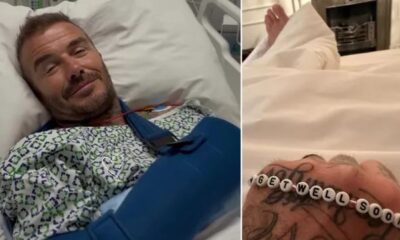
 NEWS7 days ago
NEWS7 days agoDavid Beckham Hospitalized With Arm Injury As Victoria Shares Update
-
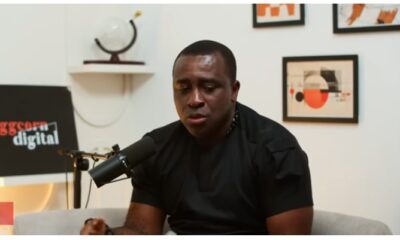
 ENTERTAINMENT5 days ago
ENTERTAINMENT5 days agoFrank Edoho Confirms Split From Second Wife Sandra Onyenuchenuya
-

 NEWS6 days ago
NEWS6 days agoMan Heartbroken As Girlfriend Of 2 Years Denies Him During Interview With YouTuber Asherkine At UNN
-

 ENTERTAINMENT5 days ago
ENTERTAINMENT5 days agoNollywood Mourns As Actor And Producer Kayode Peters Reportedly Passes Away In Canada
-
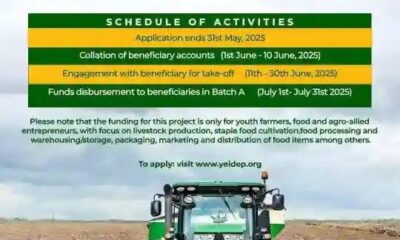
 JOBS/SCHOLARSHIPS7 days ago
JOBS/SCHOLARSHIPS7 days agoFG Releases YEIDEP 2025 Payment Schedule, Sparks Hope for Youth in Agribusiness
-
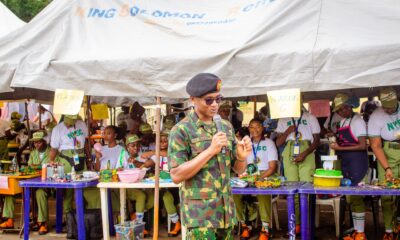
 INSIDE NYSC6 days ago
INSIDE NYSC6 days agoNYSC DG Calls For Unity and National Development During Lagos Camp Visit
-
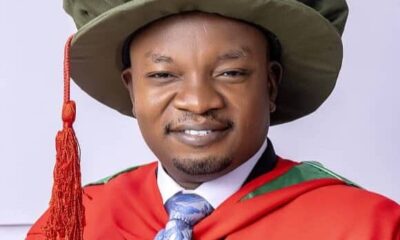
 POLITICS4 days ago
POLITICS4 days agoChristian Asaga Nwali Bags Award for Contributions to Community Development
-
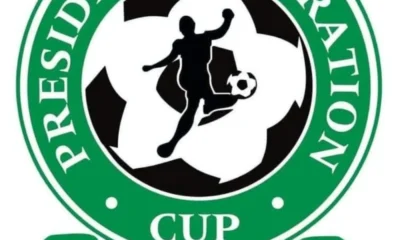
 SPORTS6 days ago
SPORTS6 days agoAbakaliki FC Faces Kwara United Today in Federation Cup Final
-

 ENTERTAINMENT5 days ago
ENTERTAINMENT5 days agoUNN Student Becky Breaks Silence, Denies Claims Of Boyfriend Denial After Viral Outing With Asherkine
-
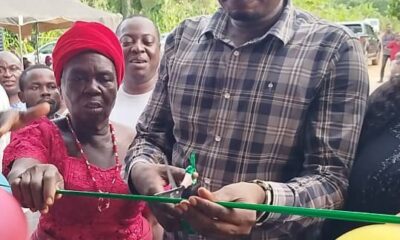
 NEWS6 days ago
NEWS6 days agoPhilanthropist Christian Asaga Nwali Commissions Bungalow for Elderly Widow in Ikwo
-
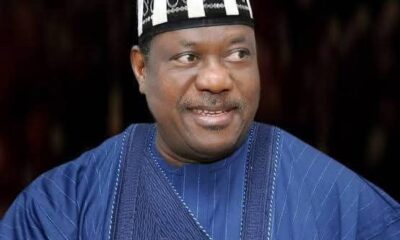
 POLITICS5 days ago
POLITICS5 days agoSenator George Akume Resigns as Secretary to the Government of the Federation
-
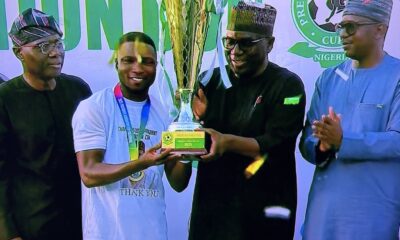
 SPORTS5 days ago
SPORTS5 days agoAfonja Warriors Spice Up the Final, Leave Rice Boys with an Empty Bowl

